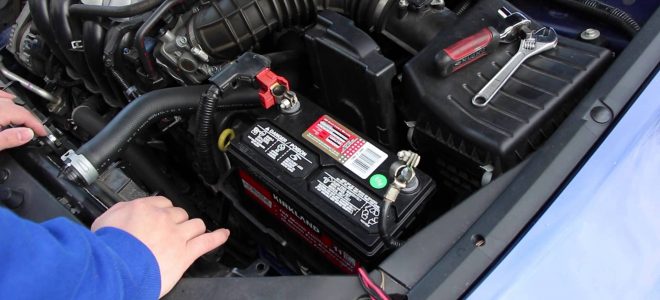One can say that the modern world is run on batteries. There are batteries in everything we use, from our cars to the power backup in our offices. As important as these batteries are, so are the cables that deliver the power from them. To make sure that things go safely and smoothly, we need to upgrade these essential parts from time to time. There’s not much information on the internet about buying a battery cable. Fret not, we are here to help you out. This is the 2020 battery cable buying guide that will help you in choosing the best product.
Types of battery cables
There are several different types of battery cables, some used in heavy-machinery, some for solar power batteries, home & office power backup systems, and other in automotive. Namely, we can further classify them into three categories.
-
SGT
These are a type of battery cable that have thermoplastic insulation. Their usage is mostly in the automotive industry. However, because of their high resistance to temperature, you can also use them in starters and in battery grounds. Additionally, being more resistant to abrasion, heat, and wear and tear, these cables are given preference over PVC ones. These cables are mostly ideal for usage in ground battery circuits. These cables can withstand temperatures as high as 105◦C and as low as -40◦C. It consists of a single strand of bare copper wire that has insulation of PVC.
-
SGX
Likewise, SGX cables are also a type of battery cables. These cables have insulations in the form of cross-linkage, which makes them suitable for use in automotive. Nevertheless, due to the resistance towards high temperatures, you can conveniently use them in other industries as well. These cables can withstand a temperature of as high as 125◦ C and the freezing temperature of -40◦ C. Additionally, these cables comprise of a single strand of copper wire that has cross-linkage polyethylene isolation. Visit here to learn more about these cables.
-
STX
Just like SGT and SGX, STX is also a type of battery cable that is commonly used in the automobile industry. It is also a type of battery cable that has insulations in cross-linkage. However, STX are the battery cables that have the thinnest walls, so if you are low on space, then STX will be the perfect choice for you. Apart from this, these cables can withstand 125◦C, so you can easily use them in the engine compartment as a wiring solution. Additionally, these cables are resistant to aging, unlike PVC ones, so you don’t have to replace them every few years.
Sizes of battery cables
The sizing of battery cables is done as per the standards of the American Wire Gauge (AWG) system. The size of a battery cable can be anywhere from 6 to 4/0. In this system, 4/0 is the thickest, and 6 is the thinnest. The size of the cable is reliant on on the required amperage. Sometimes using a larger wire for a low ampere operation can cause many line losses. Alternatively, using smaller wire for a large ampere operation can cause too much heat due to current flow and can be a fire hazard. You must consult an electrician before choosing a wire size.
The dangers of buying low-quality battery cables
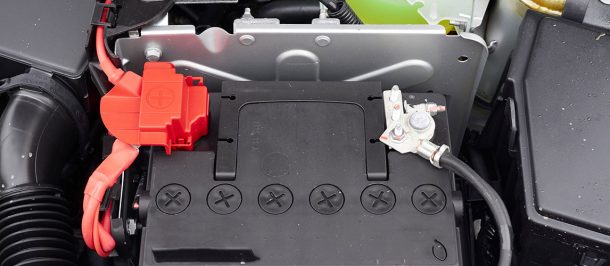
Source: carbibles.com
If your battery cables are old and failing, then it is best to replace them as soon as possible with good quality battery cables. The usage of low-quality or failing cables can be a huge fire hazard. These cables are responsible for supplying power. If they fail to handle the heat generated from the passing electricity, a fire can start and cause unimaginable damage. Also, failure to supply proper power to the system can cause a short circuit or even failure of some components.
On the other hand, if the cables are not in immaculate condition, then they may fail to deliver full power to the batteries. This can cause the batteries not to charge properly and run dry.
The Top 5 Battery Cable Brands of 2020
1. TEMCo W0180-50 2 Gauge AWG
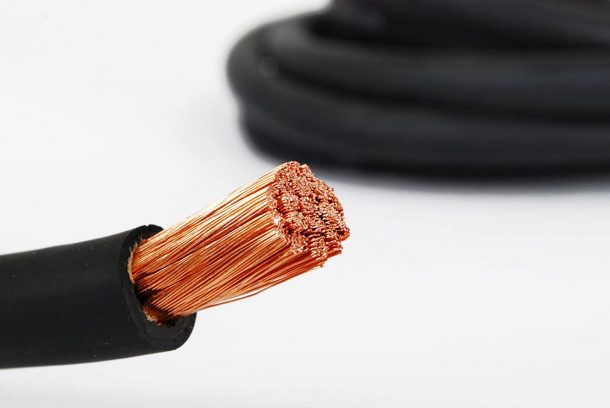
Source: pinterest.com
The TEMCo cables are very good, and this particular cable is a 30-gauge copper cable with 600 volts rating. It can bear the temperatures between -50 to 105 C. This is enough to support any modern-day backup system. The insulation sleeve is made of a flexible EPDM rubber that is much resistant to cuts and tears. The EPDM rubber is also good for battery cables because it resists the corrosion that battery cables usually have to go through.
2. ZW 4 AWG
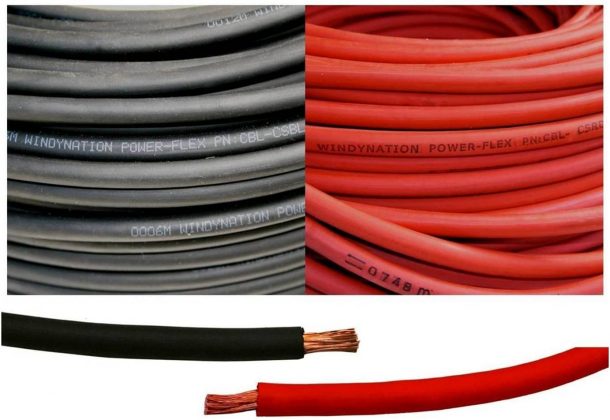
Source: pinterest.com
The 4 AWG cable by ZW is a four-gauge copper cable that is tested at 1000-volts and has a rating of 750V. The flexibility of this battery cable is also good, along with the resistance to wear and tear and chemical reactions. This cable can bear extreme temperatures well, from -50 to 105C. So, you can use this cable for many different purposes, including welding cables, solar cables, loudspeaker power cables, as well as to power high-intensity lighting. Click here to learn more about these cables.
3. Exell Battery 1/0 AWG Interconnecting Cable
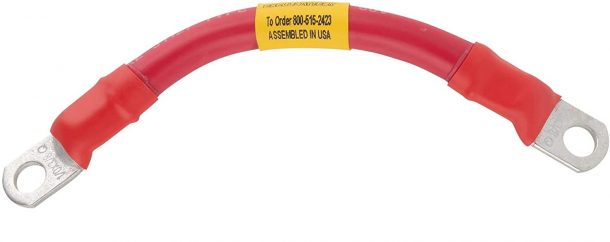
Source: pinterest.com
The Exell battery cable has a very high user rating and great reviews. It is a high-quality copper cable with fine strands that can handle voltage up to 600V. Though the insulation is of plastic, it is a very high-quality plastic that can resist heat and chemicals. The wire is heat resistant up to 105 C. You can use this cable for durable connections in any system, from your car to a solar energy backup system.
4. Spartan Power 4 AWG
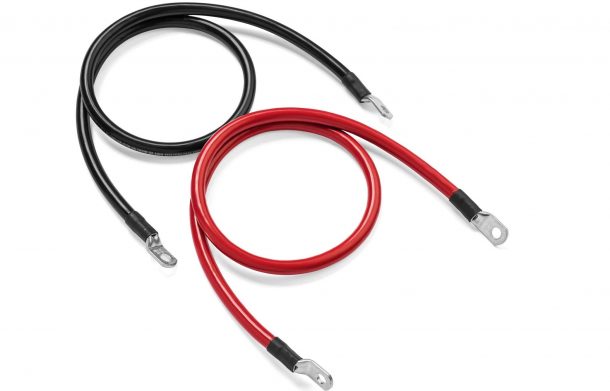
Source: pinterest.com
These are good quality 4-gauge AWG cables, made up of pure copper. Crafted in America, these cables are available in a variety of lengths. They are resistant to corrosion and oxidation. You can use these cables for a plethora of purposes, from jumping up your RV to setting up a battery bank. These cables are resistant to water and mud, so that you can use them as underground wiring too.
5. InstallGear 1/0 Gauge Power/Ground
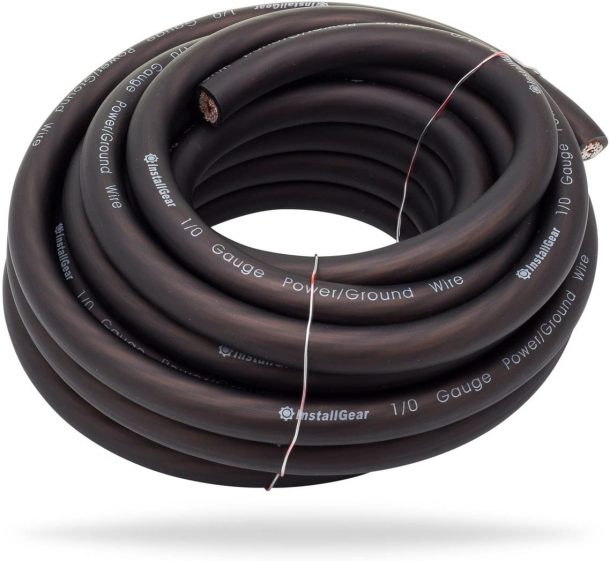
Source: pinterest.com
InstallGear is famous for the value of the money they provide for their products. These cables are 1/0 gauge thick and made for heavy load working. These are not pure copper, though, but a copper-clad aluminum. It is good for electricity flow and offers less resistance to the current. Thus, resulting in lesser heat from the wires.

